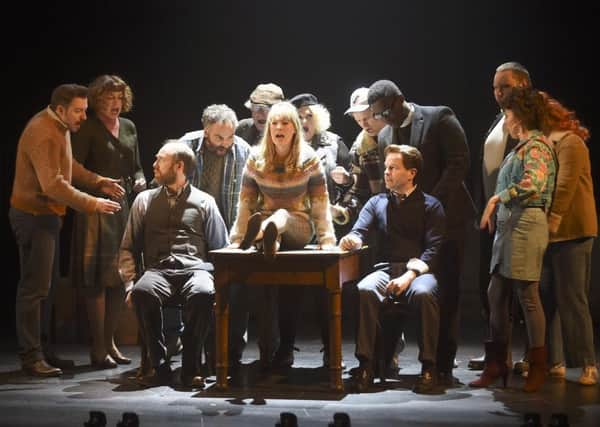Why Scotland needs some new ‘Local Heroes’ – Brian Ferguson


It is a midweek night at the Royal Lyceum Theatre in Edinburgh and there is hardly a seat to be had for a show yet to officially open. Previews had been packing out the venue for more than a week by the time I caught up with it. Demand for tickets was such that an extra fortnight had already been added to its run, now a whopping seven weeks.
The Lyceum has undoubtedly scored a remarkable coup in creating and launching the show ahead of a transfer to the Old Vic in London. It already seems set to both break the venue’s box office records and become a staple of Scottish musical theatre, in the same way that Sunshine on Leith and the Glasgow Girls, two other modern-day hits which are still regularly filling venues across the country, have since launching at Dundee Rep and the Citizens Theatre in Glasgow in 2007 and 2012 respectively.
Advertisement
Hide AdAdvertisement
Hide AdLocal Hero is, of course, a musical adaptation of Bill Forsyth’s classic 1983 film, which he has helped turn into a stage musical with playwright David Greig, the Royal Lyceum’s artistic director. Although there are several new elements and characters to the musical, the storyline and essence of the movie have remained mercifully intact. Tellingly, the stage show is also set in 1983, the year the film was released.
Although there will be some audience members who will be new to Local Hero, it’s a safe bet that the majority of those who are snapping up tickets are familiar with Forsyth’s original, widely regarded as one of Scotland’s best-loved movies. Considering the musical has been a show in the planning for several years, it may just be serendipity that its launch has coincided with the revival of several other cornerstones of Scottish culture. Or it may not.
John Byrne, the creator of Tutti Frutti, the much-loved TV drama which was shown just four years after Local Hero, seems genuinely baffled that it is finally being repeated, in a prime-time Saturday night slot on the new BBC Scotland channel. Much of its audience will be drawn from those hooked on the exploits of The Majestics rock and roll band and the characters played so memorably by then relative unknowns Robbie Coltrane, Emma Thompson, Richard Wilson and Katy Murphy.
The National Theatre of Scotland, which turned to Tutti Frutti for one of its first shows in 2006, is about to revive another classic piece of Scottish culture when it takes The Cheviot, The Stag and The Black, Black Oil out on the road 46 years after audiences were first gripped by John McGrath’s play. It was revived in 2015, after a near-20-year-long absence from the stage, by Dundee Rep, which has just announced that iconic comic strip Oor Wullie, which made its debut in 1936, is to become a new stage musical.
Advertisement
Hide AdAdvertisement
Hide AdAnd, of course, of the most successful Scottish movies of recent years was T2, Danny Boyle’s 2017 sequel to Trainspotting, which was released 24 years after Irvine Welsh’s characters made their debut. As if all this wasn’t enough, this week marks the latest instalment of the long goodbye from the cast of Still Game with the last-ever TV episode. However, Jack and Victor will be reuniting with all the Craiglang favourites for a final farewell, at least for this year, at the Hydro in the autumn. None of the above would be happening without audience demand for the kind of feel-good nostalgia which has seen all manner of Scottish bands reuniting and dusting down their best-loved albums in recent years. But am I the only one wondering when the current generation is going to get its own stories, characters and cultural icons to cling onto in future years?
